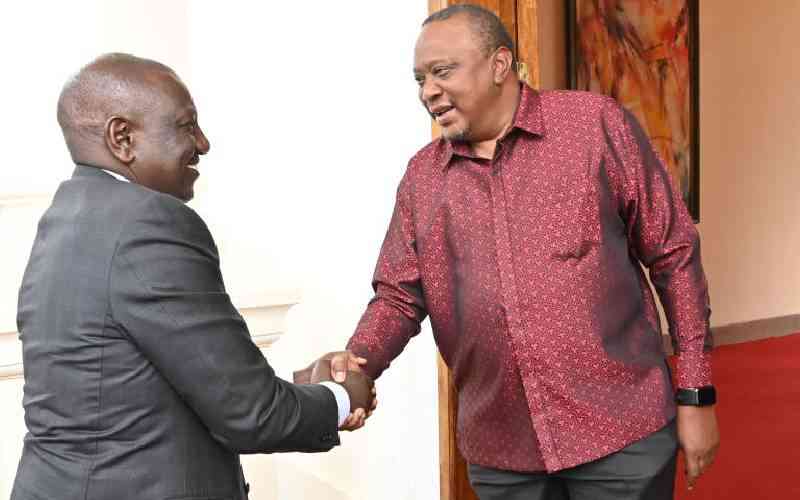×
The Standard e-Paper
Join Thousands Daily

President William Ruto's awkward political reality after supporting former President Uhuru Kenyatta in four presidential elections, has been captured in the 371-page autobiography, For The Record, by his bosom buddy, Defence Cabinet Secretary Aden Duale.
In an unprecedented move, Ruto - a sitting President - has penned a riveting endorsement for the book where he opens up on his fall out with his predecessor, the humiliation of watching his allies axed, and the collapse of a grand political idea in Jubilee Party.